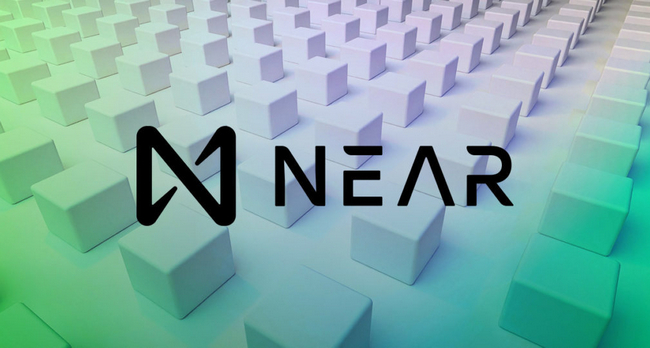-
 Bitcoin
Bitcoin $88,181.6305
0.78% -
 Ethereum
Ethereum $1,580.0219
-4.20% -
 Tether USDt
Tether USDt $0.9999
0.00% -
 XRP
XRP $2.0788
-2.65% -
 BNB
BNB $602.4379
-0.80% -
 Solana
Solana $139.3294
-1.20% -
 USDC
USDC $1.0000
0.01% -
 Dogecoin
Dogecoin $0.1612
-0.40% -
 TRON
TRON $0.2467
0.98% -
 Cardano
Cardano $0.6265
-2.90% -
 Chainlink
Chainlink $13.1244
-3.39% -
 UNUS SED LEO
UNUS SED LEO $9.1889
-2.34% -
 Avalanche
Avalanche $19.9165
-1.95% -
 Stellar
Stellar $0.2456
-3.70% -
 Toncoin
Toncoin $2.9340
-3.39% -
 Sui
Sui $2.2459
0.23% -
 Shiba Inu
Shiba Inu $0.0...01238
-2.89% -
 Hedera
Hedera $0.1718
-0.32% -
 Bitcoin Cash
Bitcoin Cash $347.1812
2.43% -
 Hyperliquid
Hyperliquid $18.2508
0.15% -
 Litecoin
Litecoin $78.7727
-0.59% -
 Polkadot
Polkadot $3.7410
-5.18% -
 Dai
Dai $0.9999
-0.01% -
 Bitget Token
Bitget Token $4.4327
-2.10% -
 Ethena USDe
Ethena USDe $0.9991
-0.01% -
 Pi
Pi $0.6320
-0.32% -
 Monero
Monero $215.3731
-0.39% -
 Pepe
Pepe $0.0...07940
0.45% -
 Uniswap
Uniswap $5.2553
-4.10% -
 OKB
OKB $50.8750
-0.42%
What is NEAR coin? Where to trade NEAR coins?
NEAR Coin is the native cryptocurrency of NEAR Protocol, a scalable blockchain platform designed for ease-of-use, powering the development of high-speed and scalable dApps.
Oct 06, 2024 at 10:06 am

What is NEAR Coin?
NEAR Coin (NEAR) is a native cryptocurrency of the NEAR Protocol, a blockchain platform designed for user-friendly and scalable dApp development. NEAR aims to overcome the limitations of existing blockchain protocols by providing features such as:
- Sharding: Dividing the network into multiple smaller, parallel blockchains to improve transaction processing speed and scalability.
- Proof-of-Stake (PoS) consensus: A secure and energy-efficient consensus mechanism where validators stake their NEAR tokens to participate in block production.
- User-friendly developer experience: Providing a range of tools and resources to make it easier for developers to build dApps on the NEAR platform.
NEAR Coin is used for various purposes within the NEAR ecosystem, including:
- Transaction fees: NEAR tokens are required to pay transaction fees on the NEAR blockchain.
- Staking: Users can stake NEAR tokens to secure the network and earn rewards.
- Governance: NEAR token holders participate in the governance of the NEAR Protocol through voting on proposals that shape the future of the platform.
Where to Trade NEAR Coins?
NEAR coins can be traded on a variety of cryptocurrency exchanges, both centralized and decentralized. Here are some of the most popular options:
- Binance: One of the largest cryptocurrency exchanges globally, offering a wide range of trading pairs and features.
- Coinbase: A popular and beginner-friendly exchange known for its ease of use and security.
- Kraken: A U.S.-based exchange with a reputation for low fees and reliability.
- Gemini: Another U.S.-based exchange focused on security and regulatory compliance.
- FTX: A derivatives exchange also offering spot trading in a wide range of cryptocurrencies, including NEAR.
- Uniswap (Decentralized Exchange): A decentralized exchange where users can swap NEAR tokens directly with other users, without the need for an intermediary.
Conclusion
NEAR Coin is a native cryptocurrency of the NEAR Protocol, a blockchain platform designed for scalable and user-friendly dApp development. NEAR tokens play a vital role in the NEAR ecosystem, facilitating transactions, staking, and governance. NEAR coins can be traded on various cryptocurrency exchanges, both centralized and decentralized, allowing users to easily buy, sell, and hold NEAR tokens.
Disclaimer:info@kdj.com
The information provided is not trading advice. kdj.com does not assume any responsibility for any investments made based on the information provided in this article. Cryptocurrencies are highly volatile and it is highly recommended that you invest with caution after thorough research!
If you believe that the content used on this website infringes your copyright, please contact us immediately (info@kdj.com) and we will delete it promptly.
- What if the next internet sensation isn't a viral video or dance challenge—but a meme coin?
- 2025-04-22 14:40:12
- Gold Hits New All-Time High Near $3,500
- 2025-04-22 14:40:12
- Crypto law firm Burwick Law has called out Solana-based non-fungible token platform Metaplex's plan to sweep unclaimed Solana (SOL) into its treasury
- 2025-04-22 14:35:11
- Bybit Details Movement Of Hacked Assets in Staggering $1.5B Crypto Heist
- 2025-04-22 14:35:11
- 2 Main Reasons Why Kaspa (KAS) Price Is Pumping
- 2025-04-22 14:30:12
- Coinbase Launches CFTC-Approved XRP Futures Contracts Through Its Derivatives Arm
- 2025-04-22 14:30:12
Related knowledge

What is Ethereum’s Slashing mechanism and how to punish malicious behavior?
Feb 20,2025 at 03:08am
Key PointsOverview of slashingDifferent types of slashing in EthereumIncentives and consequences of slashingIdentifying and reporting slashed validatorsOngoing discussions and potential improvementsEthereum's Slashing Mechanism: Punishing Malicious BehaviorEthereum's slashing mechanism is an essential tool for ensuring network security and punishing mal...

What is the verifier node of Ethereum and how to become a verifier?
Feb 19,2025 at 06:00pm
The Verifier Node of Ethereum: A Comprehensive GuideKey Points:What is a Verifier Node?How to Become a Verifier NodeResponsibilities and Rewards of a Verifier NodeMinimum Requirements for Becoming a Verifier NodePotential Difficulties in Running a Verifier Node1. What is a Verifier Node?A Verifier Node is an independent entity on the Ethereum network th...

What is Ethereum’s staking, and how to participate and earn money?
Feb 19,2025 at 04:37pm
Key Points:Understanding Ethereum's Staking MechanismSteps to Participate in StakingBenefits and Rewards of StakingSecurity and Risk ConsiderationsTechnical Requirements and Hardware OptionsPotential Challenges and Troubleshooting TipsFAQs on Ethereum StakingWhat is Ethereum's Staking?Proof-of-Stake (PoS) is a consensus mechanism used in blockchain netw...

What is Ethereum’s DAO (Decentralized Autonomous Organization) and how does it work?
Feb 20,2025 at 03:12am
Key PointsDefinition and Structure of a DAOGovernance and Decision-Making in DAOsBenefits and Use Cases of DAOsChallenges and Limitations of DAOsWhat is Ethereum's DAO (Decentralized Autonomous Organization) and How Does It Work?Definition and Structure of a DAOA Decentralized Autonomous Organization (DAO) is an innovative governance and management fram...

What is Ethereum's multi-signature wallet and how to improve security?
Feb 20,2025 at 02:18pm
Key Points:Understanding the Concept of a Multi-Signature WalletBenefits and Drawbacks of Multisig WalletsRequirements for Setting Up a Multisig WalletStep-by-Step Guide to Generating a Multisig WalletImplementing Strategies for Enhanced Security1. Understanding the Concept of a Multi-Signature WalletA multi-signature (multisig) wallet in the Ethereum e...

What is Ethereum's oracle and how to provide data for smart contracts?
Feb 21,2025 at 01:30am
Key Points:Understanding the concept of oracles in EthereumExploring different types of oraclesDetailed guide on how to provide data for smart contractsAddressing potential challenges and considerationsWhat is Ethereum's Oracle?Oracles are crucial components in the Ethereum ecosystem, enabling smart contracts to access real-world data and off-chain even...

What is Ethereum’s Slashing mechanism and how to punish malicious behavior?
Feb 20,2025 at 03:08am
Key PointsOverview of slashingDifferent types of slashing in EthereumIncentives and consequences of slashingIdentifying and reporting slashed validatorsOngoing discussions and potential improvementsEthereum's Slashing Mechanism: Punishing Malicious BehaviorEthereum's slashing mechanism is an essential tool for ensuring network security and punishing mal...

What is the verifier node of Ethereum and how to become a verifier?
Feb 19,2025 at 06:00pm
The Verifier Node of Ethereum: A Comprehensive GuideKey Points:What is a Verifier Node?How to Become a Verifier NodeResponsibilities and Rewards of a Verifier NodeMinimum Requirements for Becoming a Verifier NodePotential Difficulties in Running a Verifier Node1. What is a Verifier Node?A Verifier Node is an independent entity on the Ethereum network th...

What is Ethereum’s staking, and how to participate and earn money?
Feb 19,2025 at 04:37pm
Key Points:Understanding Ethereum's Staking MechanismSteps to Participate in StakingBenefits and Rewards of StakingSecurity and Risk ConsiderationsTechnical Requirements and Hardware OptionsPotential Challenges and Troubleshooting TipsFAQs on Ethereum StakingWhat is Ethereum's Staking?Proof-of-Stake (PoS) is a consensus mechanism used in blockchain netw...

What is Ethereum’s DAO (Decentralized Autonomous Organization) and how does it work?
Feb 20,2025 at 03:12am
Key PointsDefinition and Structure of a DAOGovernance and Decision-Making in DAOsBenefits and Use Cases of DAOsChallenges and Limitations of DAOsWhat is Ethereum's DAO (Decentralized Autonomous Organization) and How Does It Work?Definition and Structure of a DAOA Decentralized Autonomous Organization (DAO) is an innovative governance and management fram...

What is Ethereum's multi-signature wallet and how to improve security?
Feb 20,2025 at 02:18pm
Key Points:Understanding the Concept of a Multi-Signature WalletBenefits and Drawbacks of Multisig WalletsRequirements for Setting Up a Multisig WalletStep-by-Step Guide to Generating a Multisig WalletImplementing Strategies for Enhanced Security1. Understanding the Concept of a Multi-Signature WalletA multi-signature (multisig) wallet in the Ethereum e...

What is Ethereum's oracle and how to provide data for smart contracts?
Feb 21,2025 at 01:30am
Key Points:Understanding the concept of oracles in EthereumExploring different types of oraclesDetailed guide on how to provide data for smart contractsAddressing potential challenges and considerationsWhat is Ethereum's Oracle?Oracles are crucial components in the Ethereum ecosystem, enabling smart contracts to access real-world data and off-chain even...
See all articles























































































